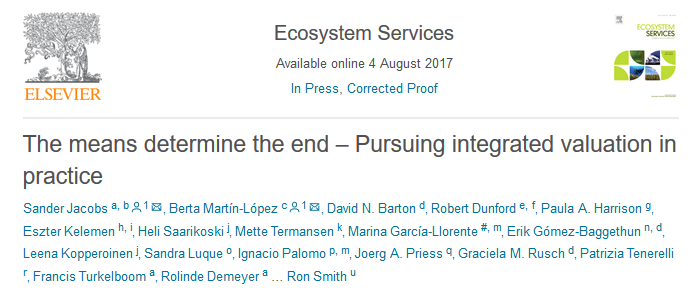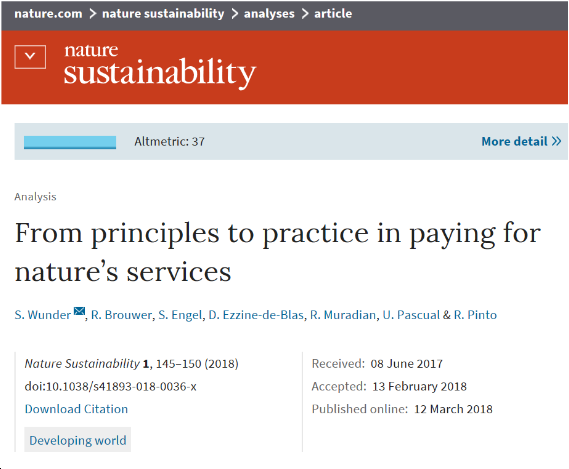January 30, 2017
Published by BC3Research Eneko Garmendia at January 30, 2017
Categories
Monetary valuation of the environment is increasingly embedded in policy. Despite broad claims that valuation is policy-relevant, there is widespread frustration that it has not widely improved environmental outcomes, that it obscures many other types of values, and presents unintended consequences. We argue that this is, in part, because of a tendency to overlook the mechanics of how valuation tools and data are embedded into the institutions (regulations, norms, rules, schemes) that mediate decision-making.
Do you like it?
September 10, 2017
Published by BC3Research Ignacio Palomo at September 10, 2017
Categories
In environmental valuation, although it is well recognised that the choice of method heavily affects the outcome, little is known on how existing valuation methods actually elicit the different values. Through the assessment of real-life applications of valuation of nature, this study tracks down the suitability of 21 valuation methods for 11 value types and assesses the methodological requirements for their operationalization.
Do you like it?
March 19, 2018
Published by BC3Research Unai Pascual at March 19, 2018
Categories
La reciente publicación de la prestigiosa revista Nature Sustainability en el que participa el Investigador Ikerbasque en el BC3, Unai Pascual, afirma que, si bien los pagos por servicios ambientales son una herramienta valiosa en todo el mundo para proteger el medio ambiente, es imprescindible su evaluación y adecuación a cada contexto cultural y socio-económico.
Do you like it?
March 19, 2018
Published by BC3Research Unai Pascual at March 19, 2018
Categories
Payments for Environmental Services (PES) constitute an innovative economic intervention to counteract the global loss of biodiversity and ecosystem functions. In theory, some appealing features should enable PES to perform well in achieving conservation and welfare goals. In practice, outcomes depend on the interplay between context, design and implementation. Inspecting a new global dataset, we find that some PES design principles pre-identified in the social-science literature as desirable, such as spatial targeting and payment differentiation, are only partially being applied in practice.
Do you like it?



